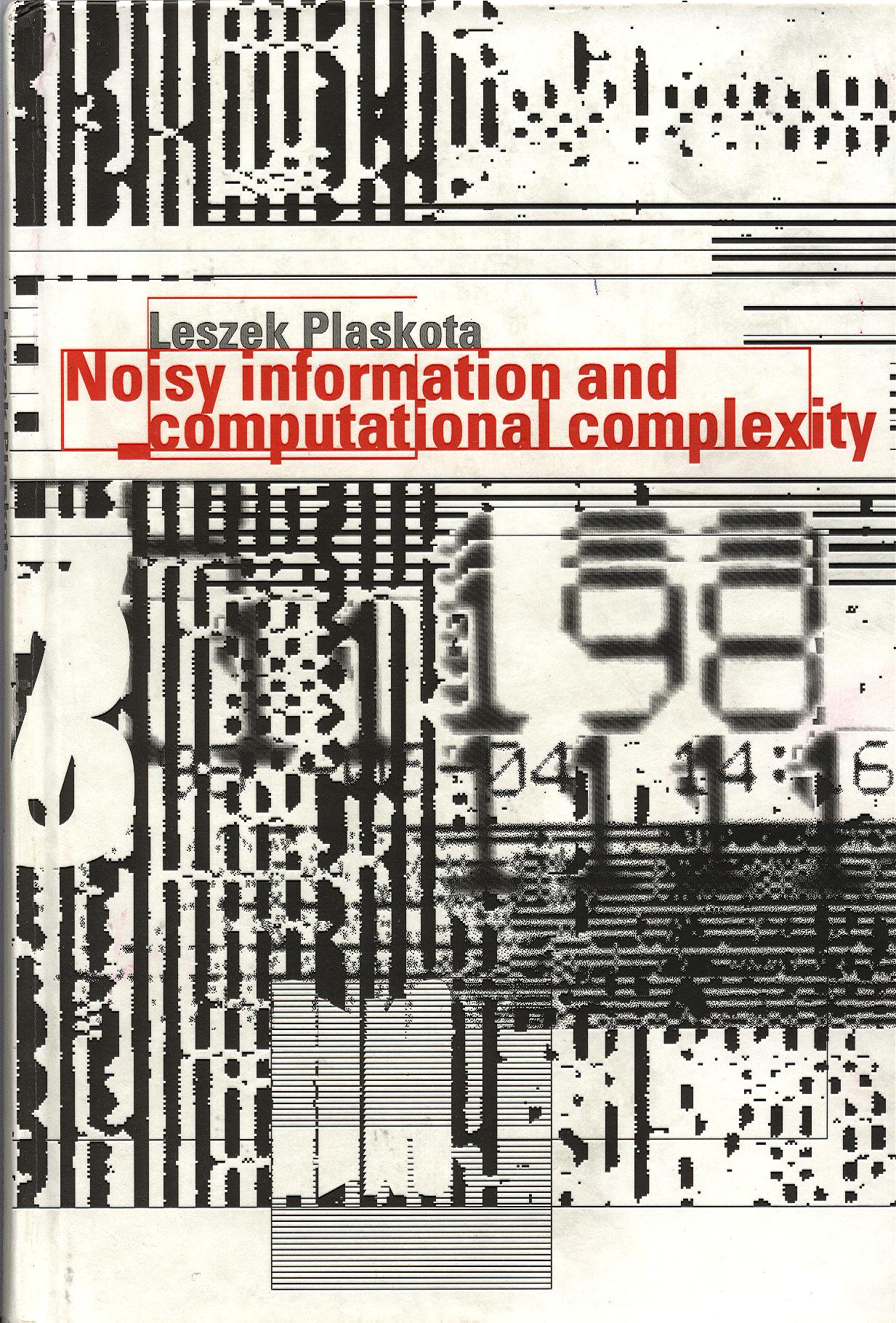
L. Plaskota
Noisy Information and Computational Complexity
This is the first book in which noisy information
is studied in the context of computational complexity,
in other words it deals with the computational complexity
of problems for which available information is
partial, noisy and priced. The author develops a general
theory and gives a number of applications;
deterministic as well as stochastic noise is considered.
He presents optimal algorithms, information, and
complexity bounds in different settings; worst case,
average case, mixed worst-average and average-worst, and
asymptotic. Particular topics include the existence of
optimal linear algorithms, optimality properties
of smoothing spline, regularization and least squares
algorithms, adaption versus nonadaption.
The book integrates the work of researchers in
computational complexity, approximation theory
and statistics, and includes many new results as well.
About two hundred exercises are supplied. It can be used
either as a textbook, or as a standard reference.
Table of contents
1 Overview
2 Worst case setting
2.1 Introduction
2.2 Information, algorithms, approximation
2.3 Radius and diameter of information
2.4 Affine algorithms for linear functionals
2.5 Optimality of spline algorithms
2.6 Special splines
2.7 Varying information
2.8 Optimal nonadaptive information
2.9 Complexity
2.10 Complexity of special problems
3 Average case setting
3.1 Introduction
3.2 Information and its radius
3.3 Gaussian measures on Banach spaces
3.4 Linear problems with gaussian measures
3.5 The case of linear functionals
3.6 Optimal algorithms as smoothing splines
3.7 Varying information
3.8 Optimal nonadaptive information
3.9 Complexity
3.10 Complexity of special problems
4 Worst-average case setting
4.1 Introduction
4.2 Affine algorithms for linear functionals
4.3 Approximation of operators
5 Average-worst case setting
5.1 Introduction
5.2 Linear algorithms for linear functionals
5.3 Approximation of operators
6 Asymptotic setting
6.1 Introduction
6.2 Asymptotic and worst case settings
6.3 Asymptotic and average case setting
